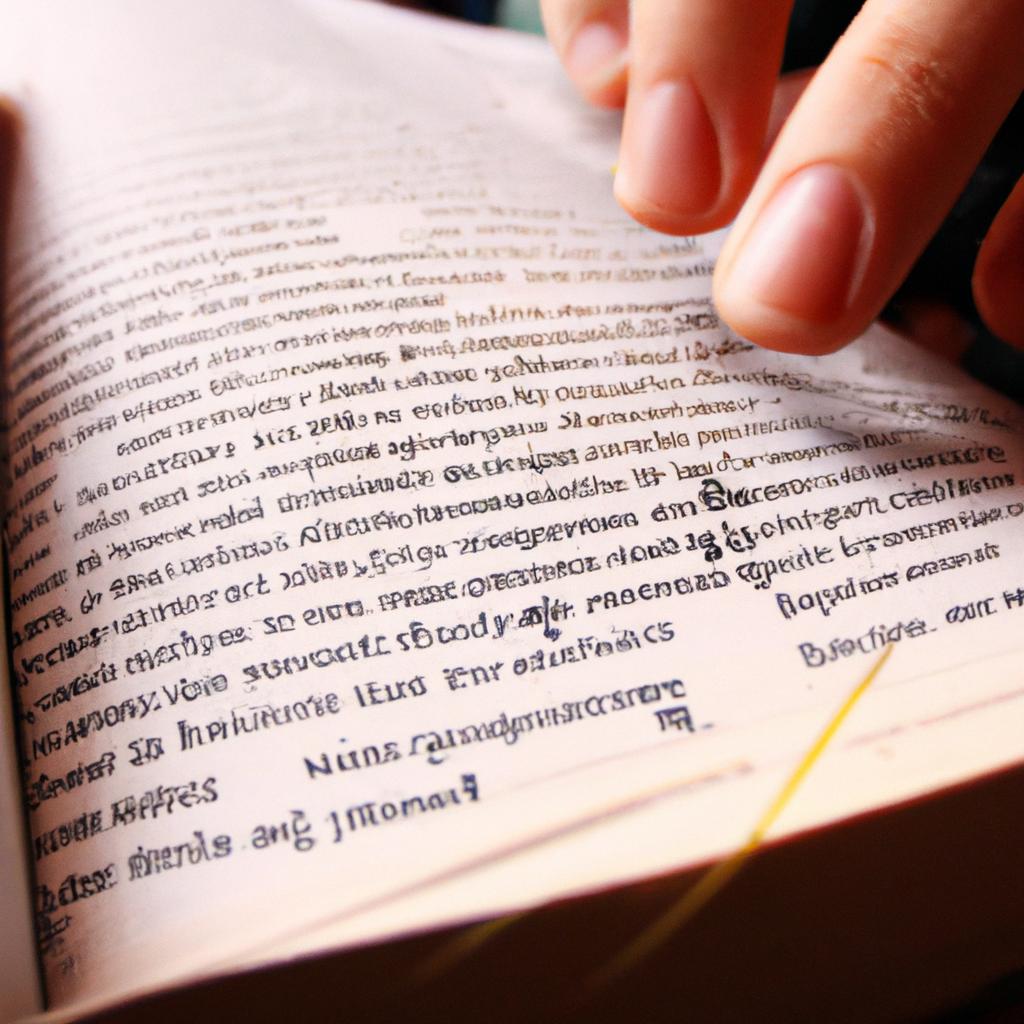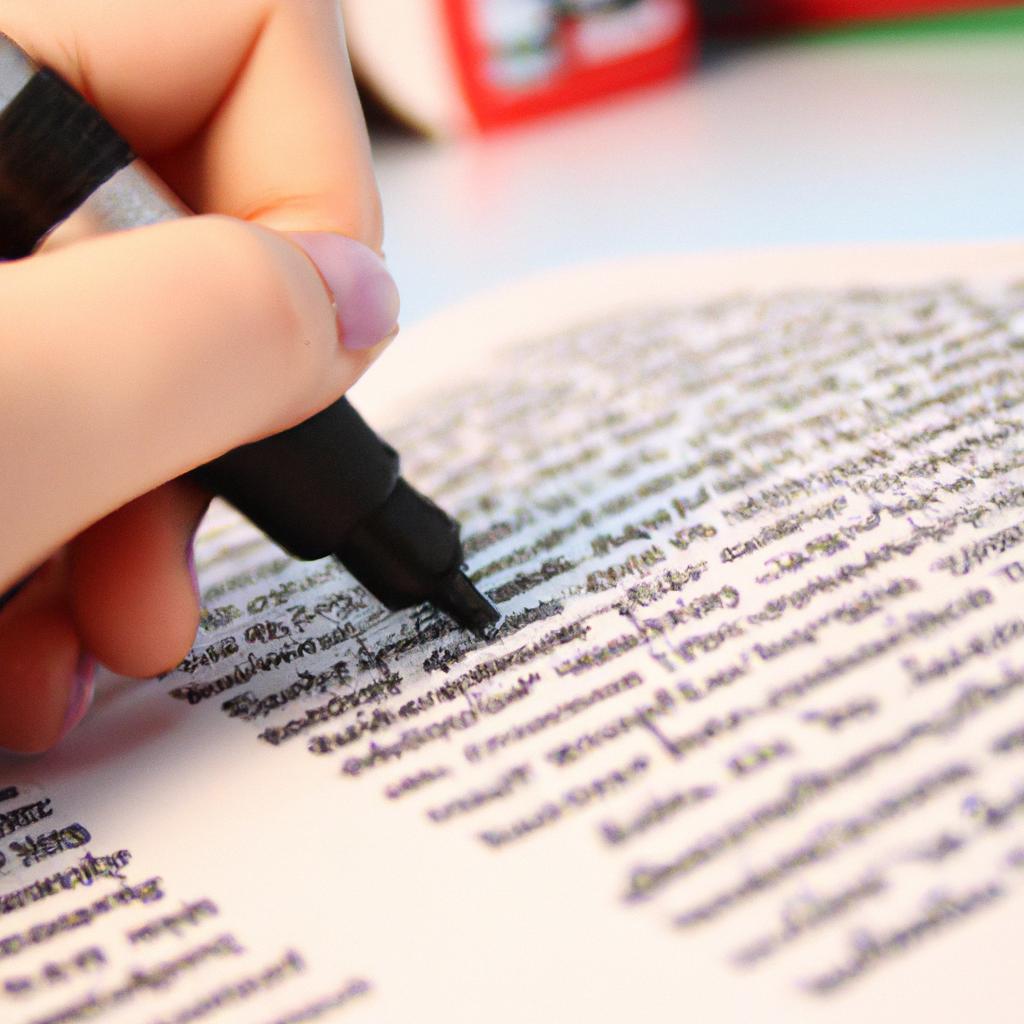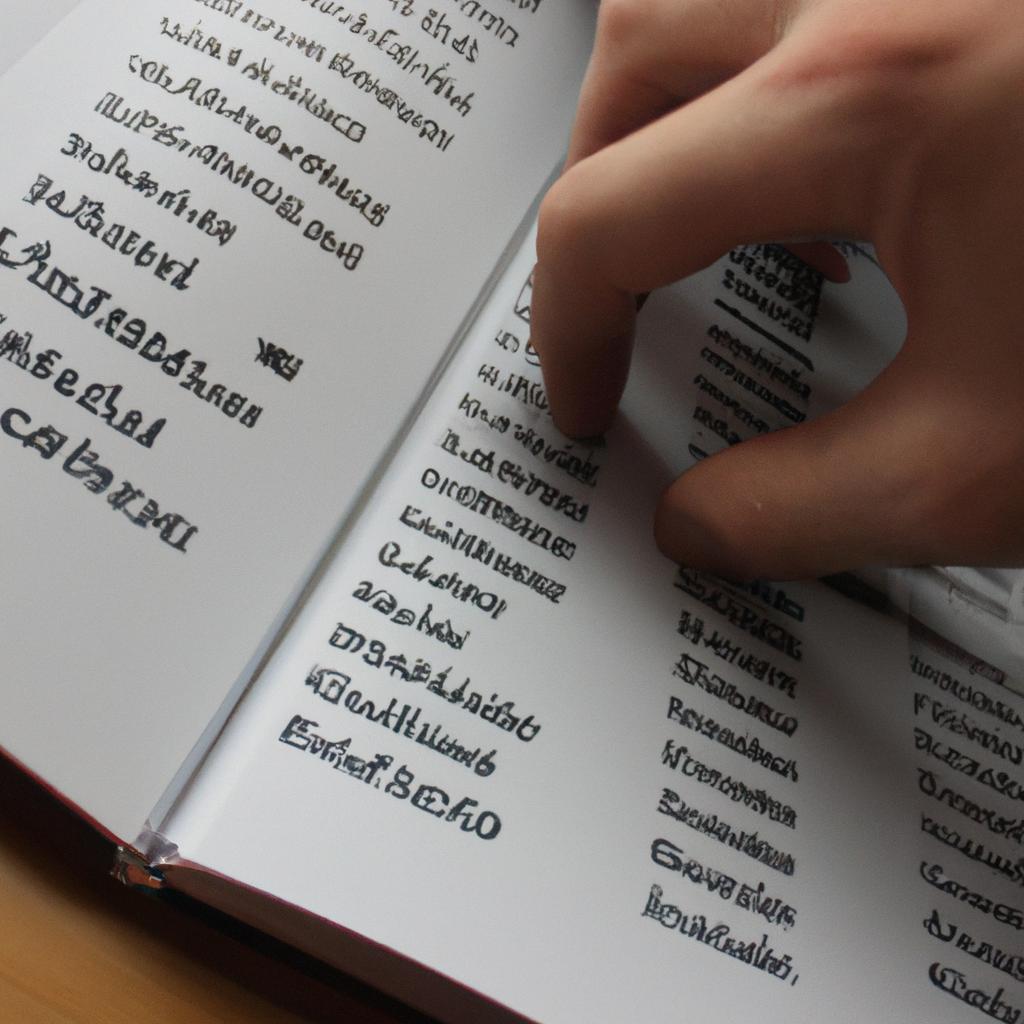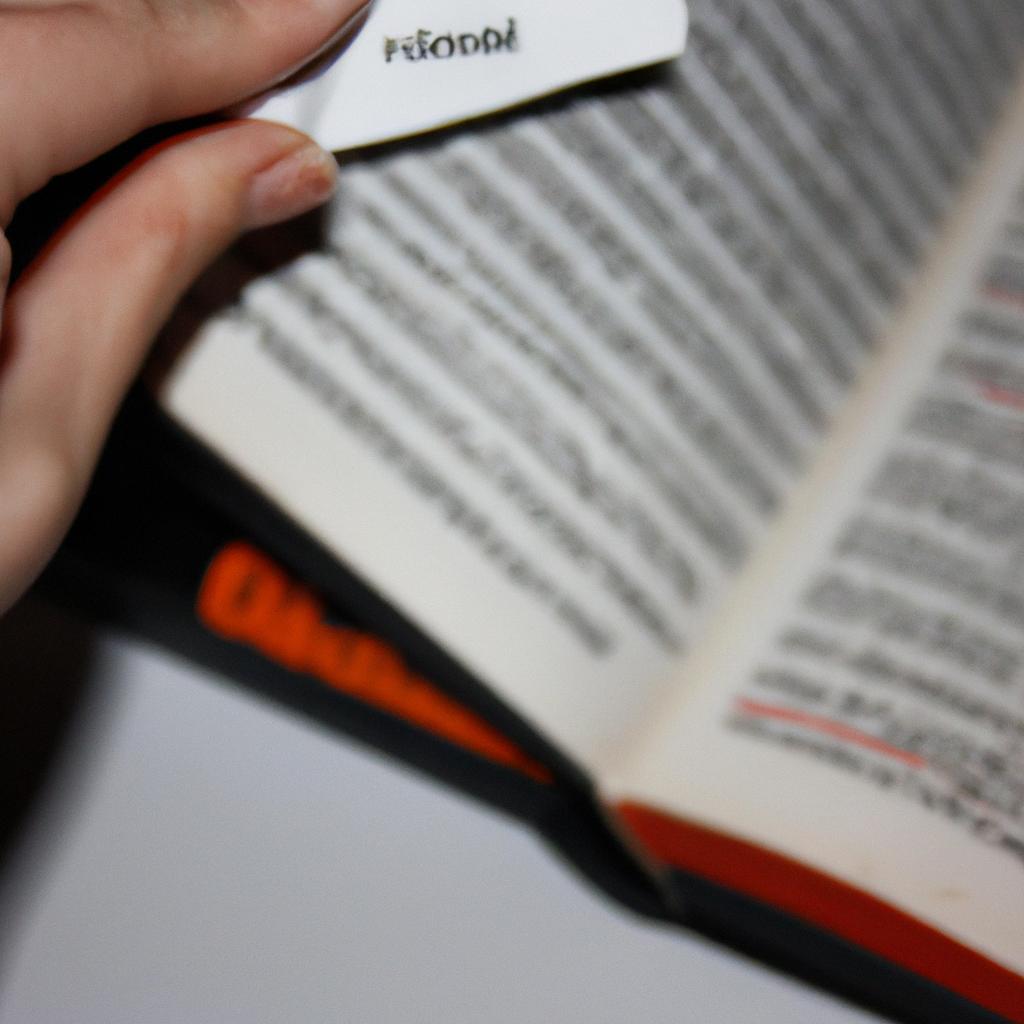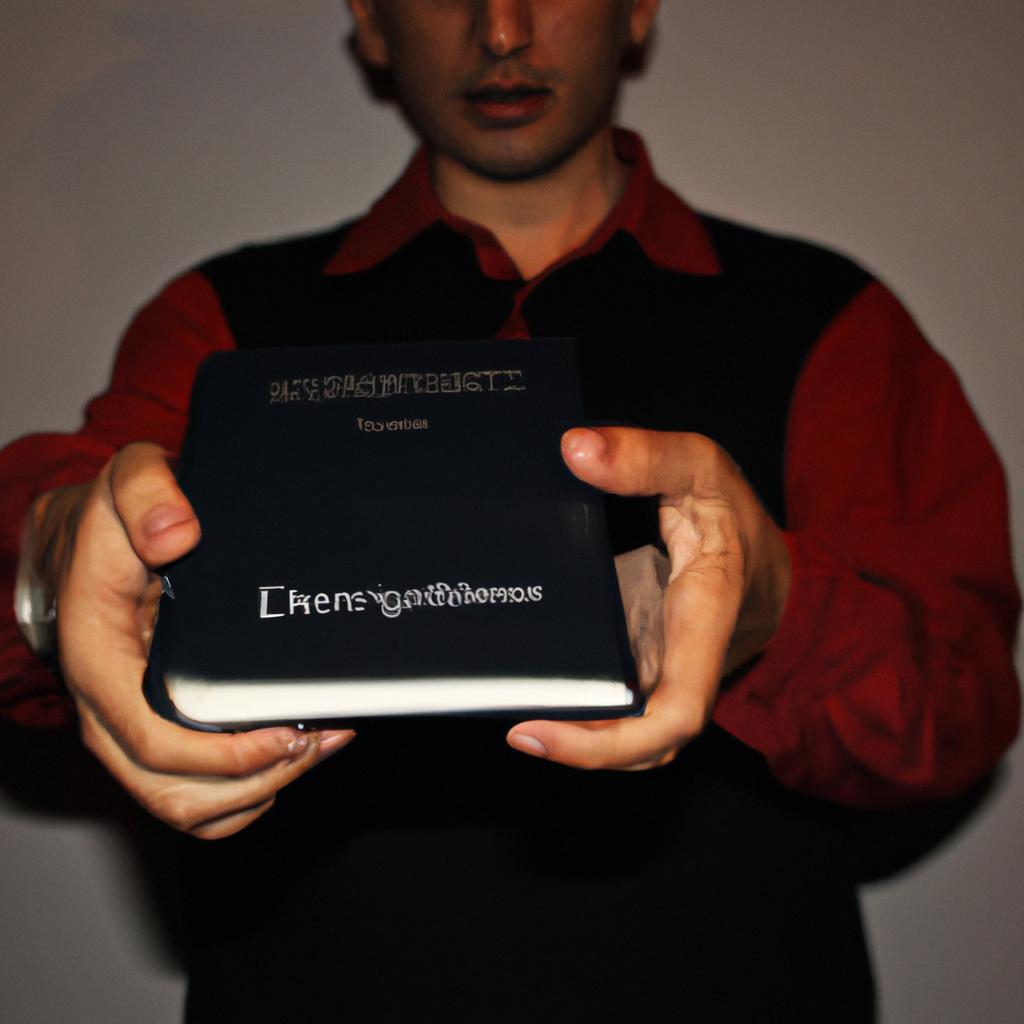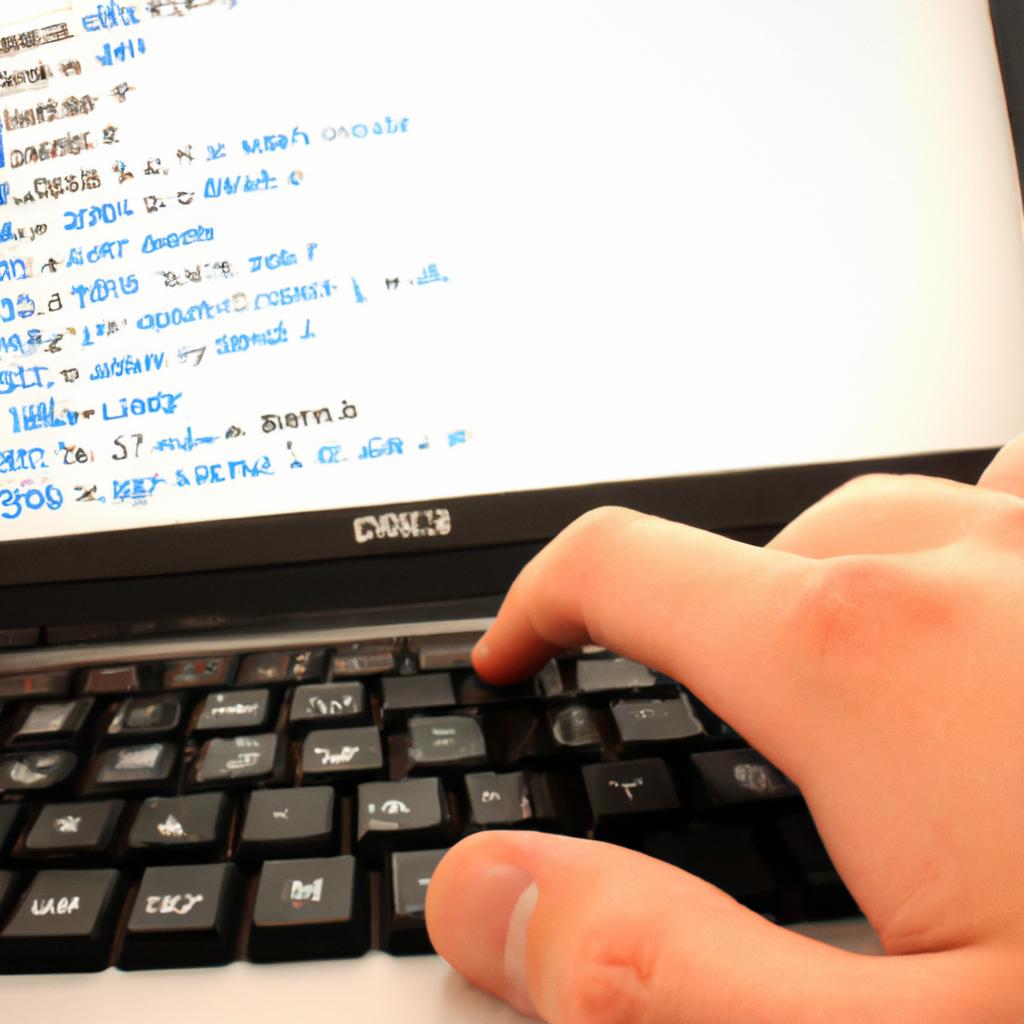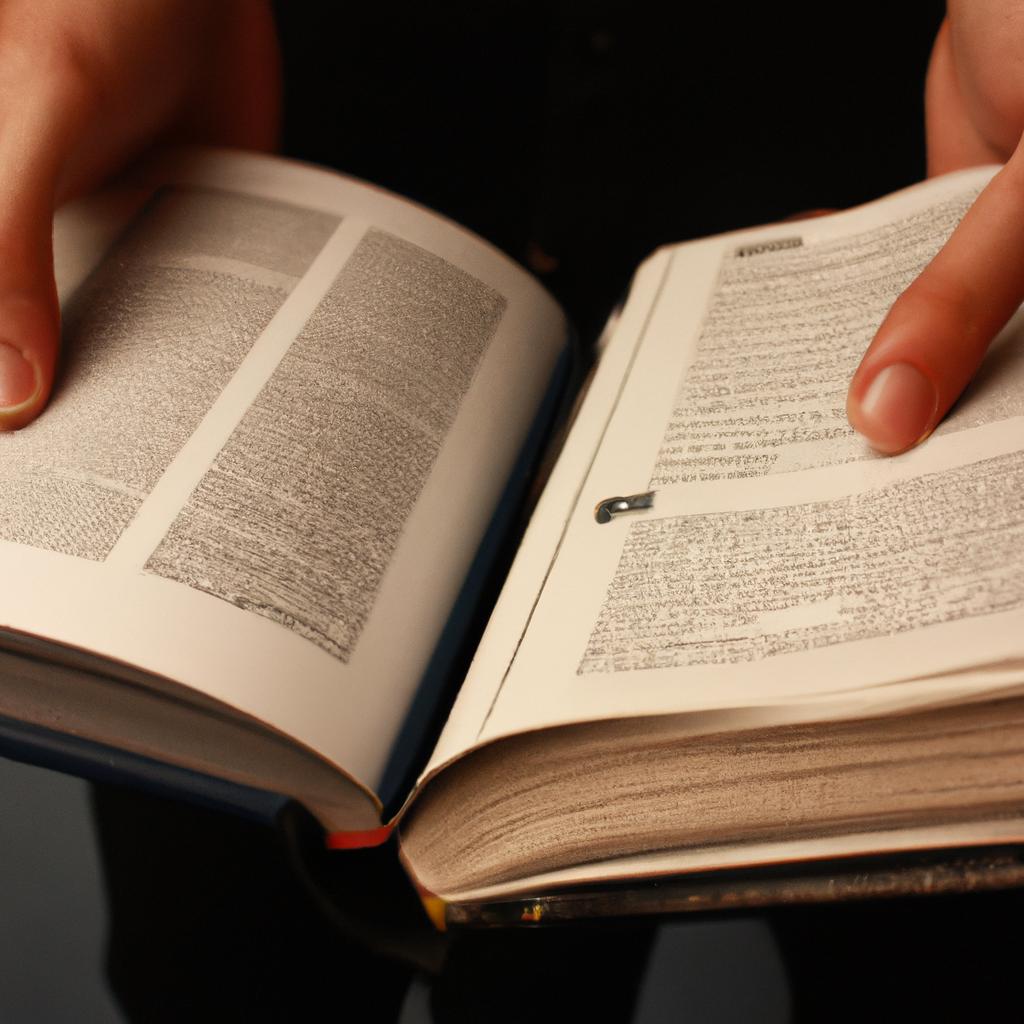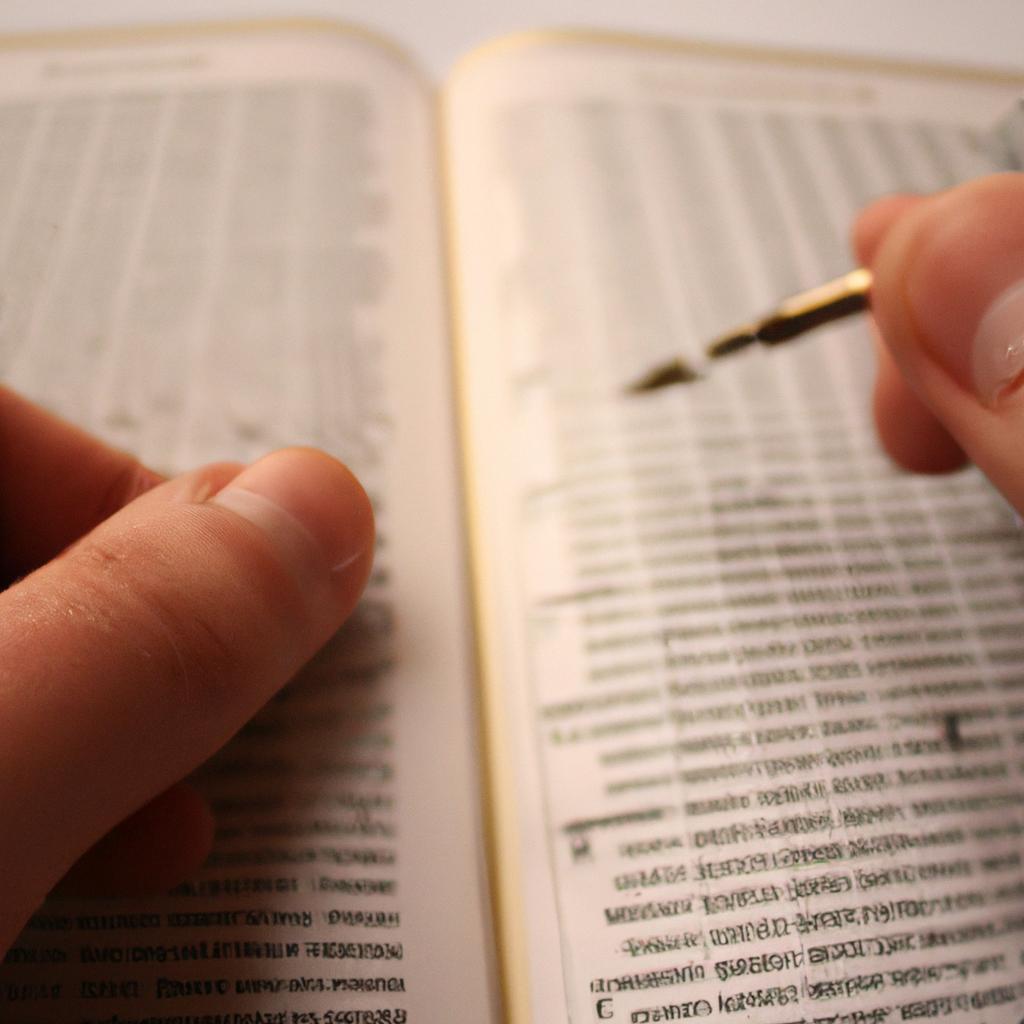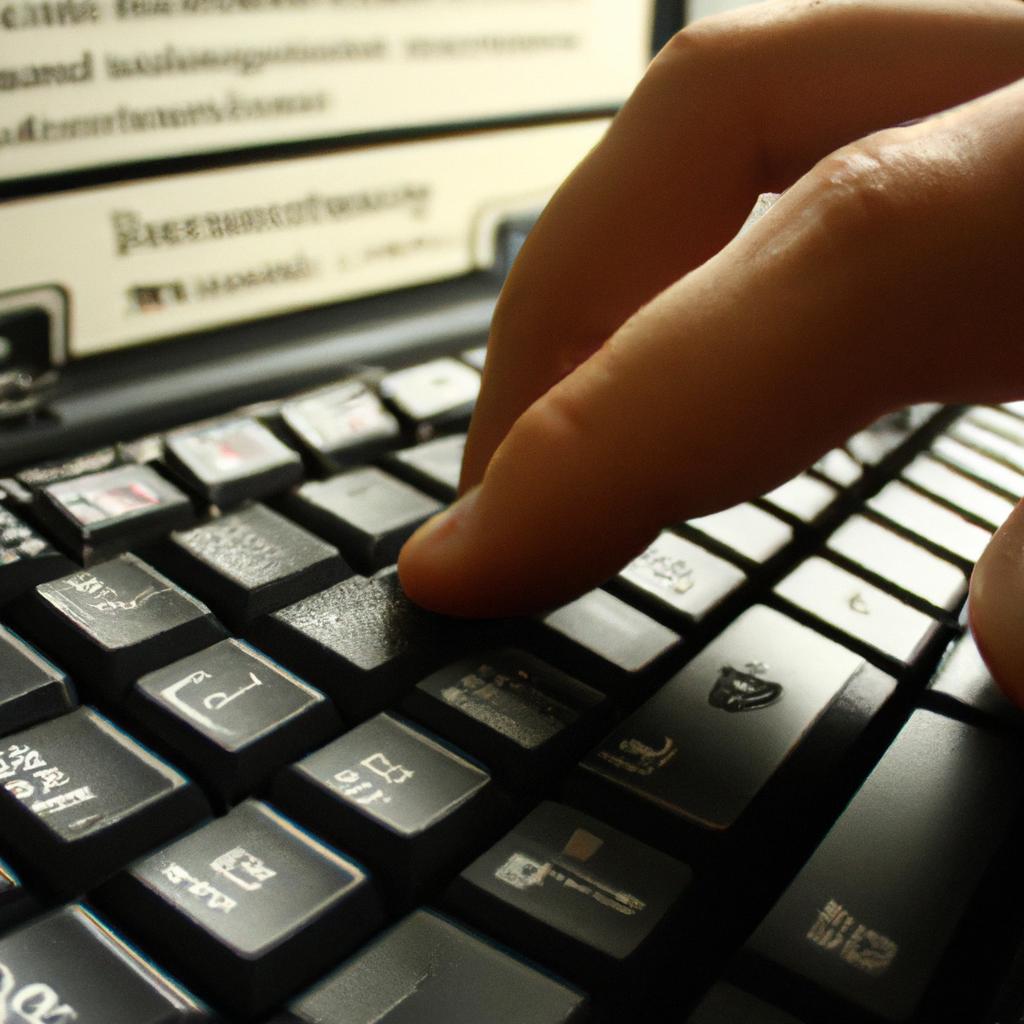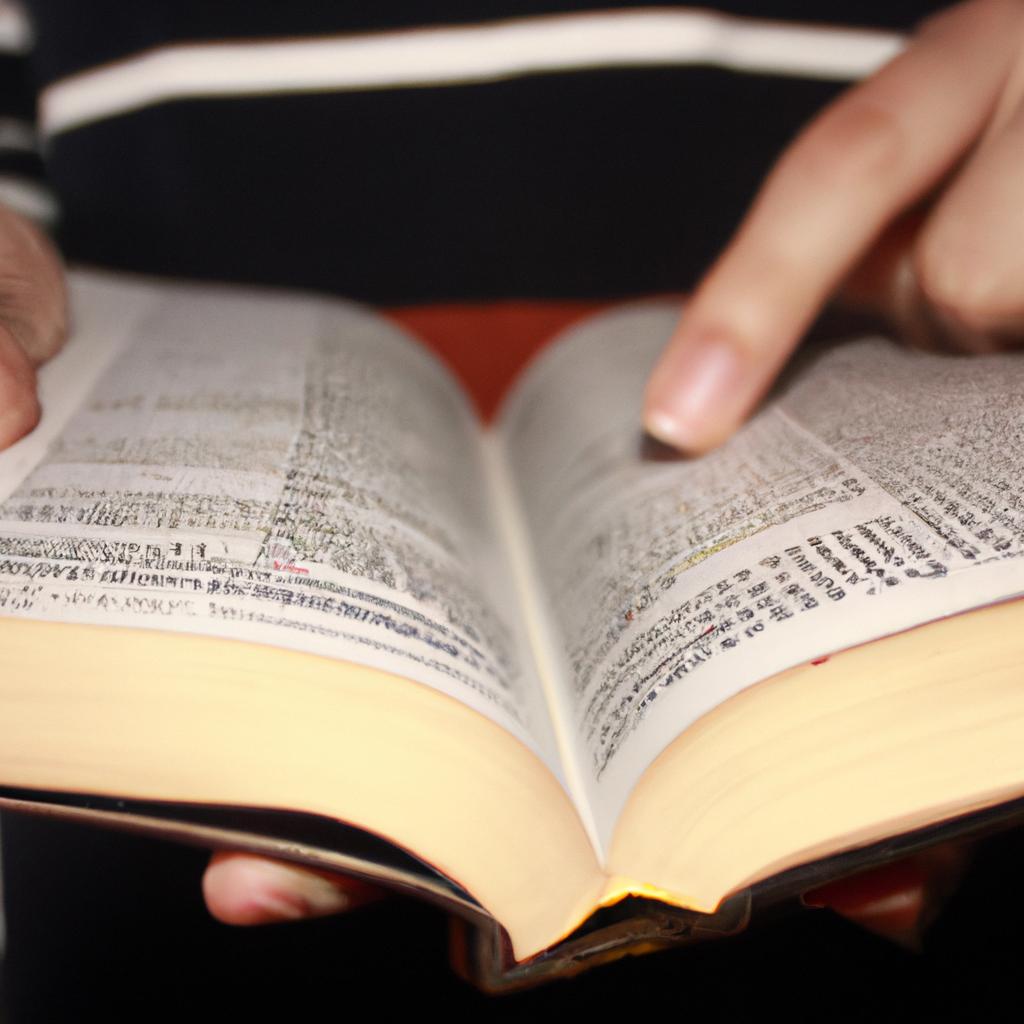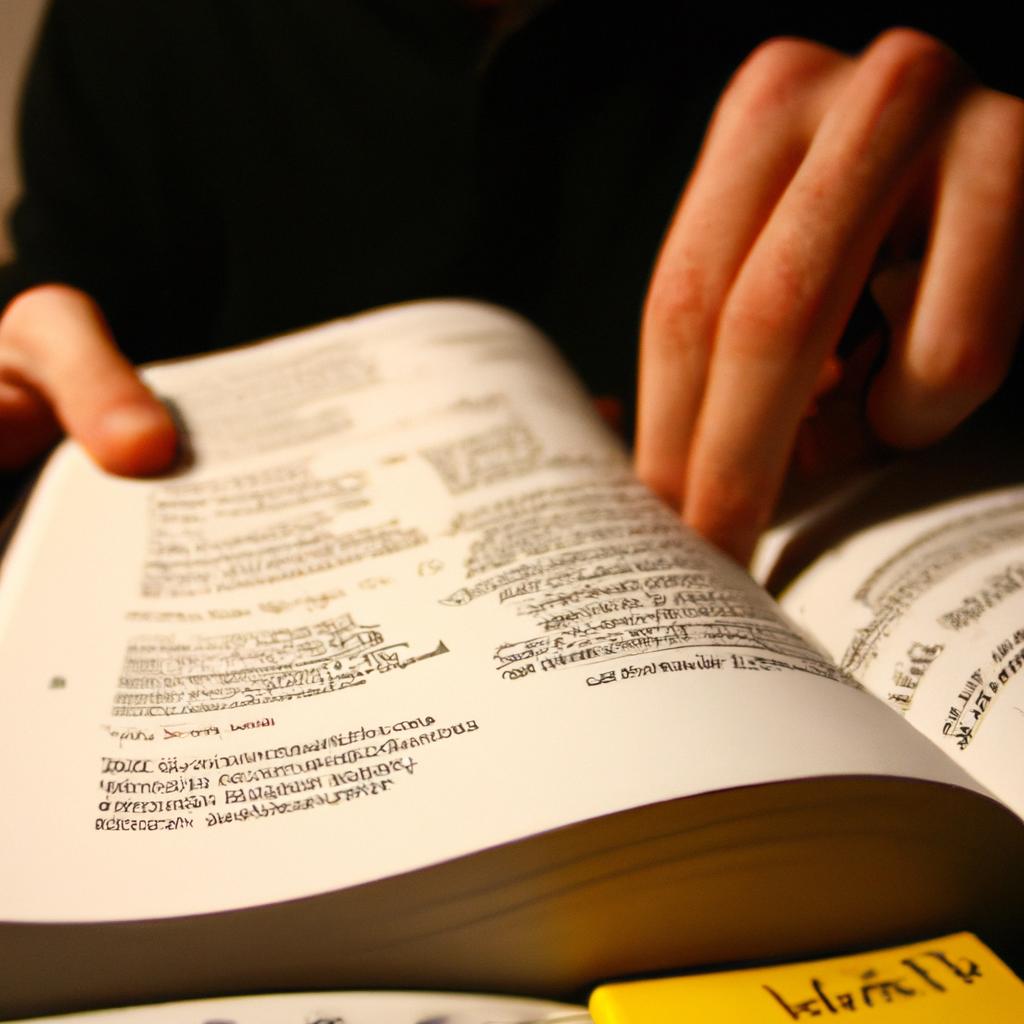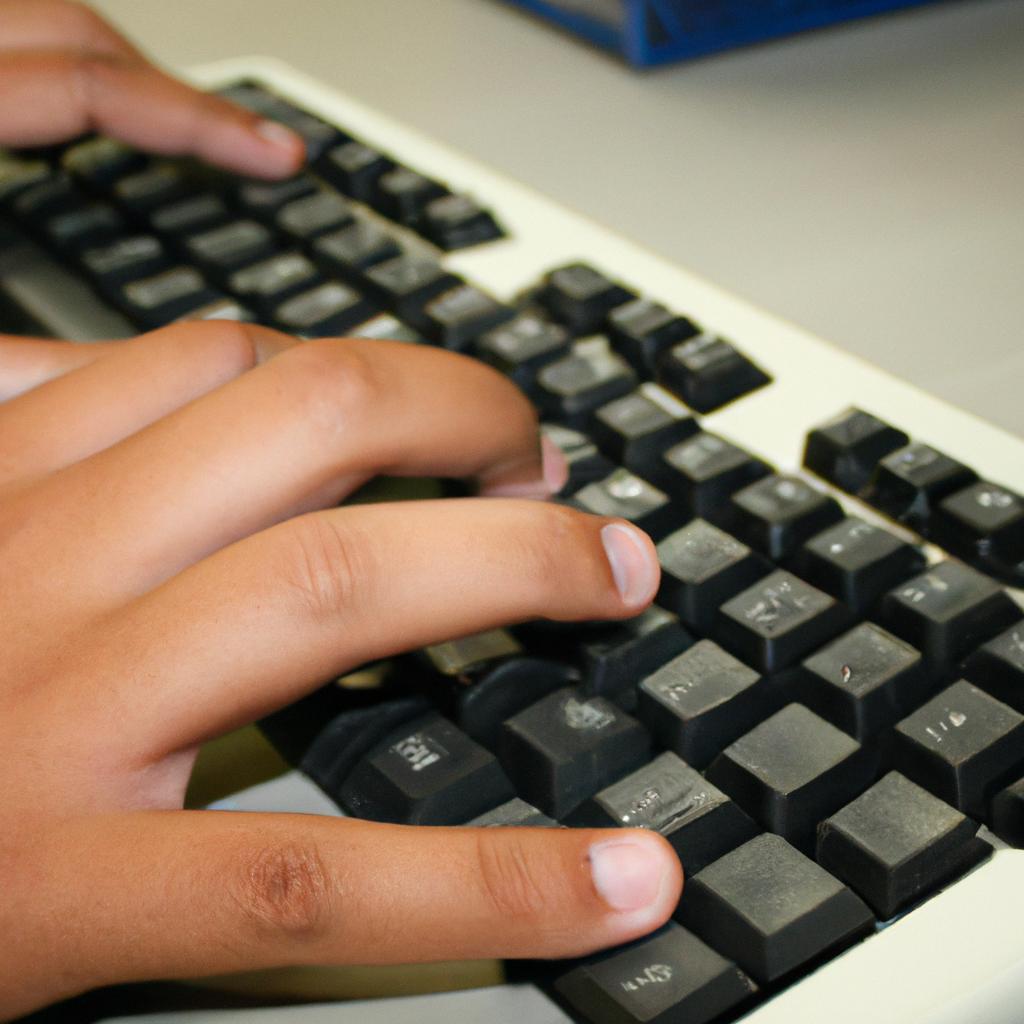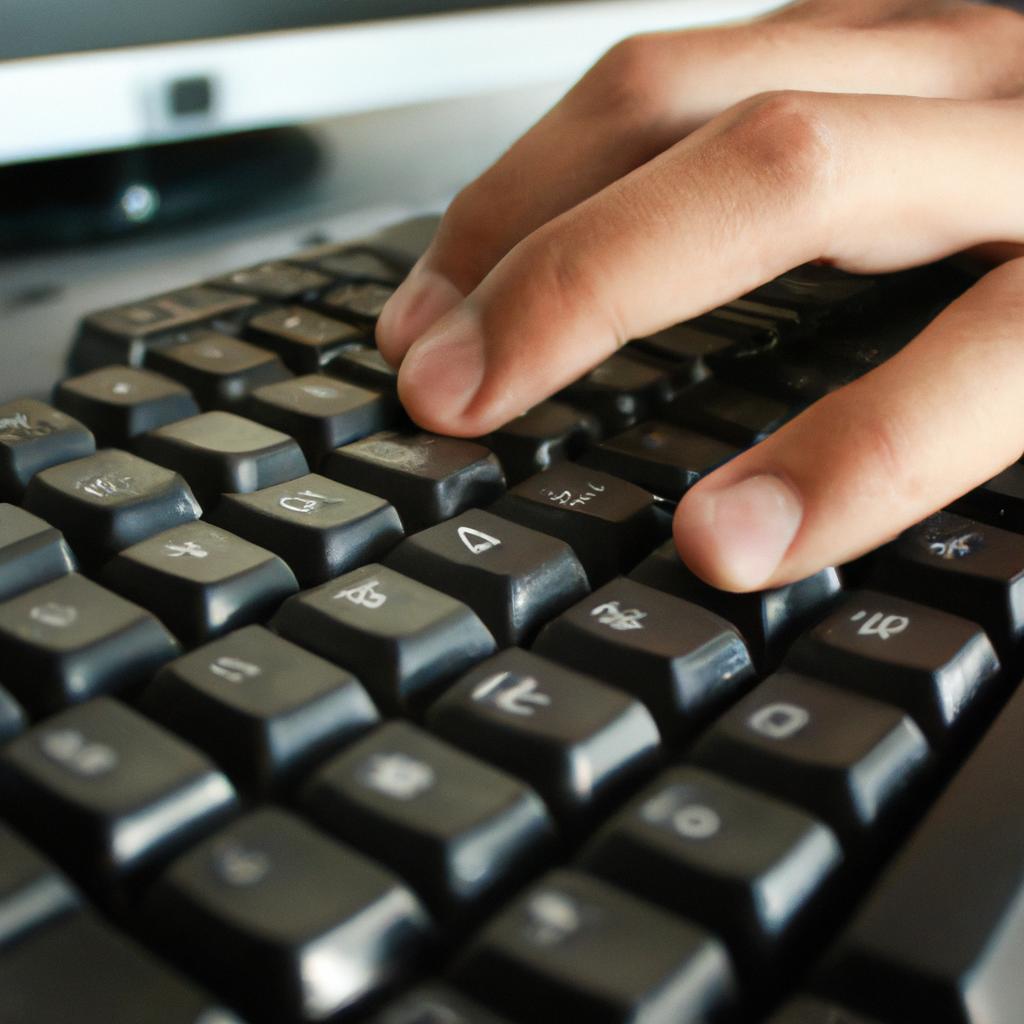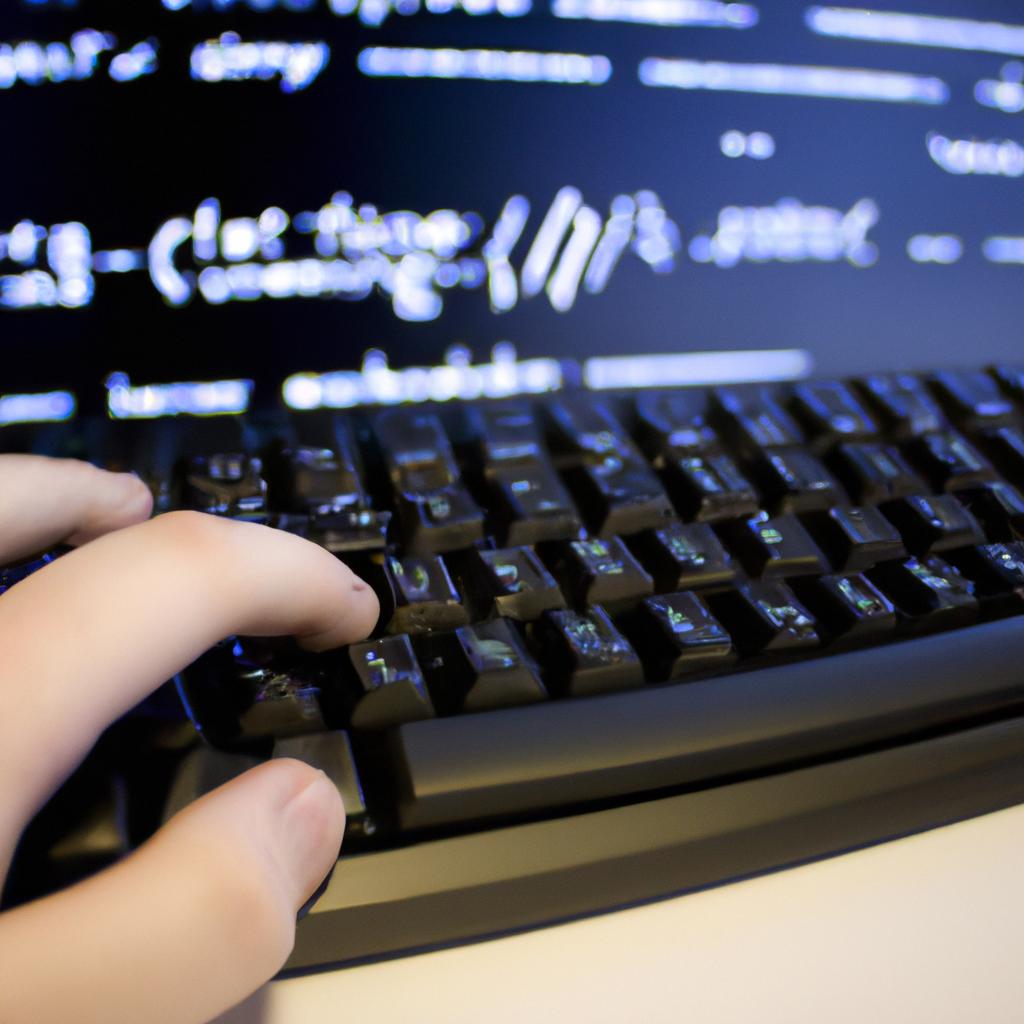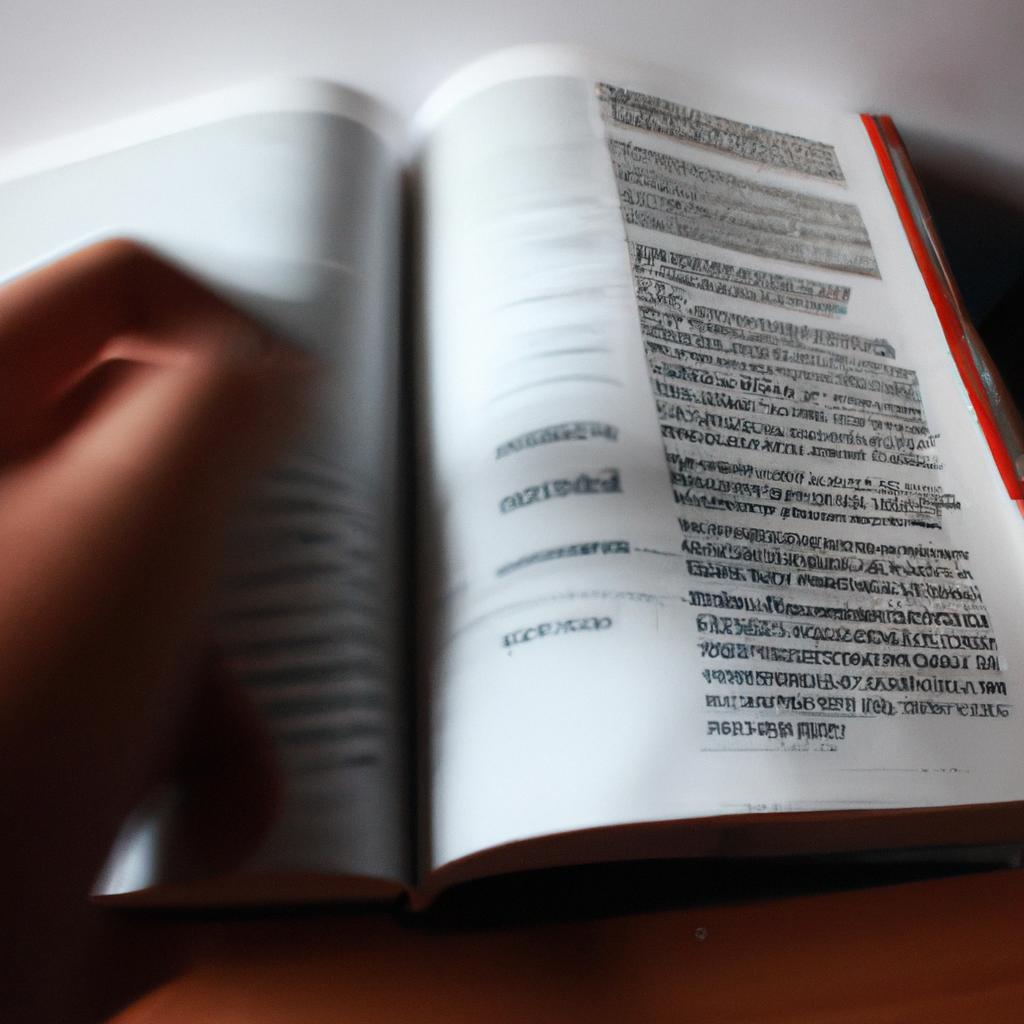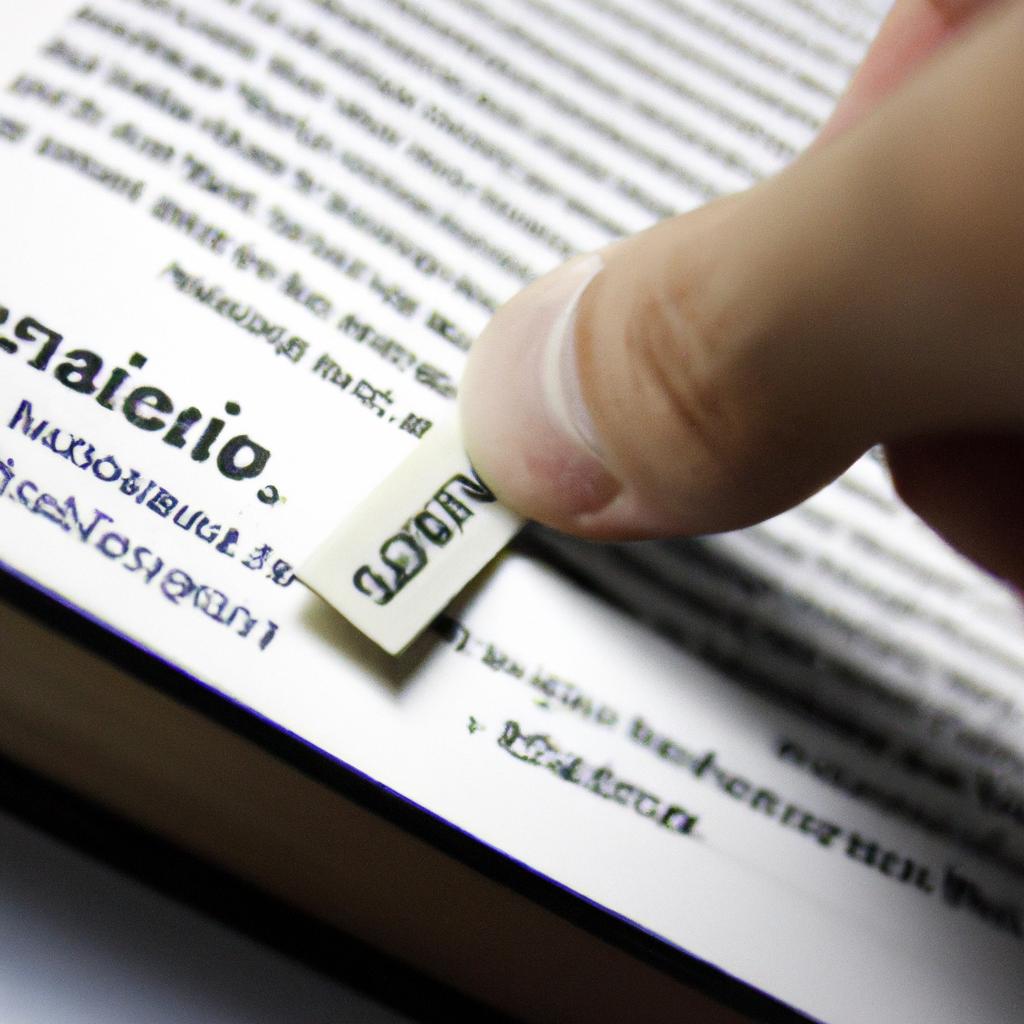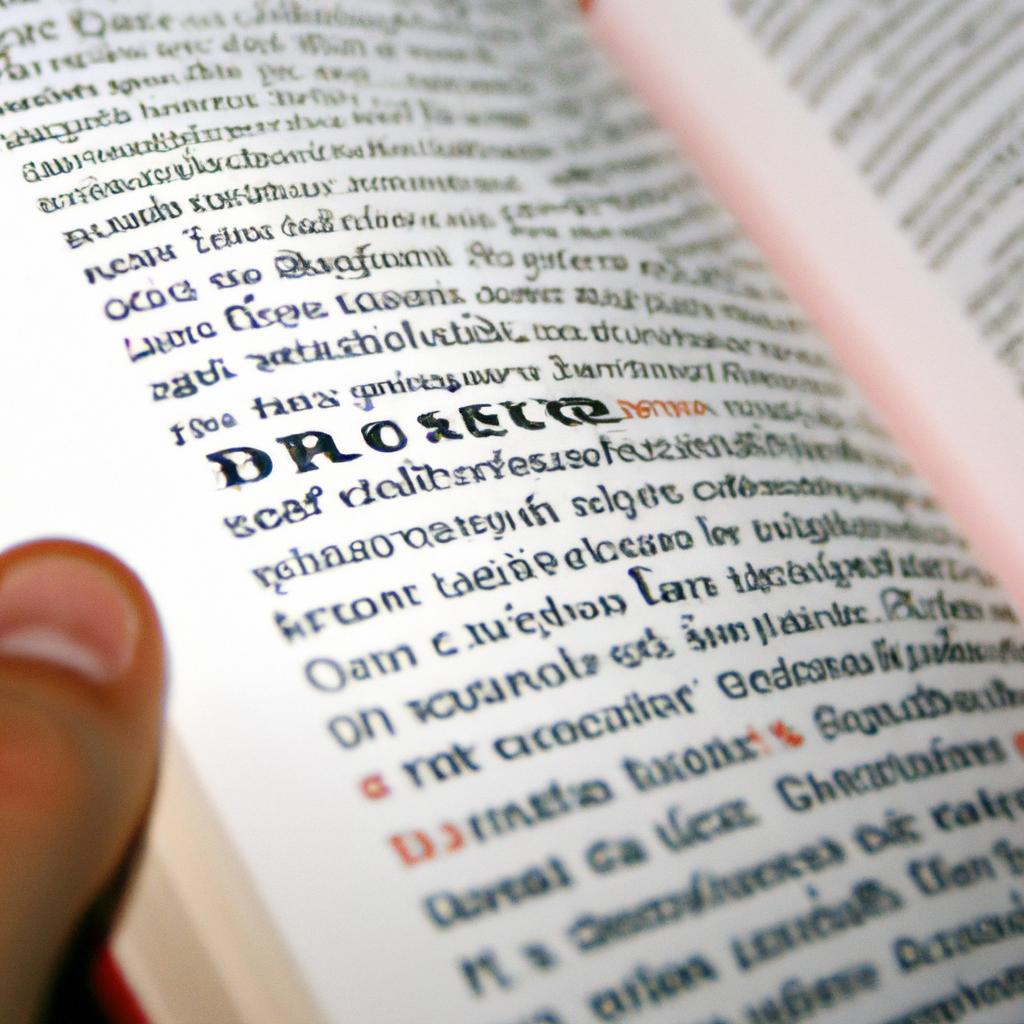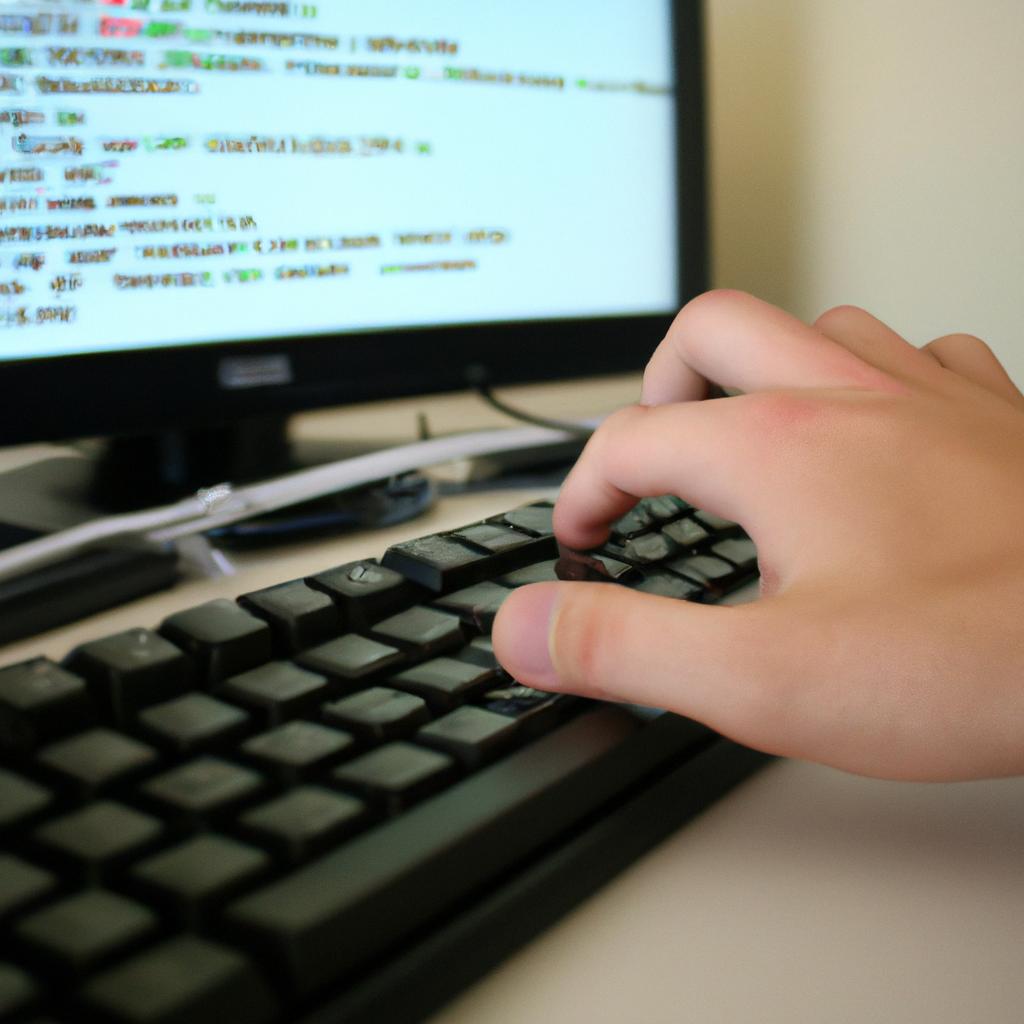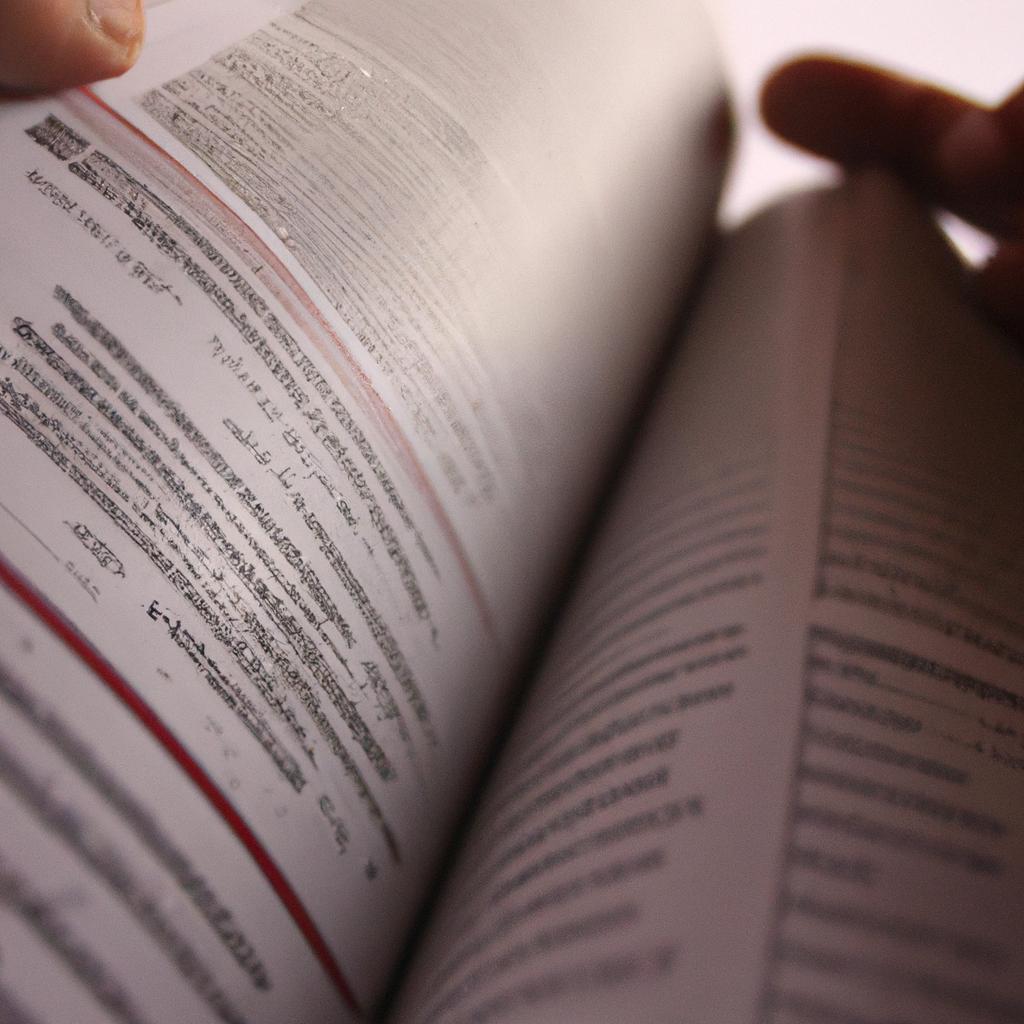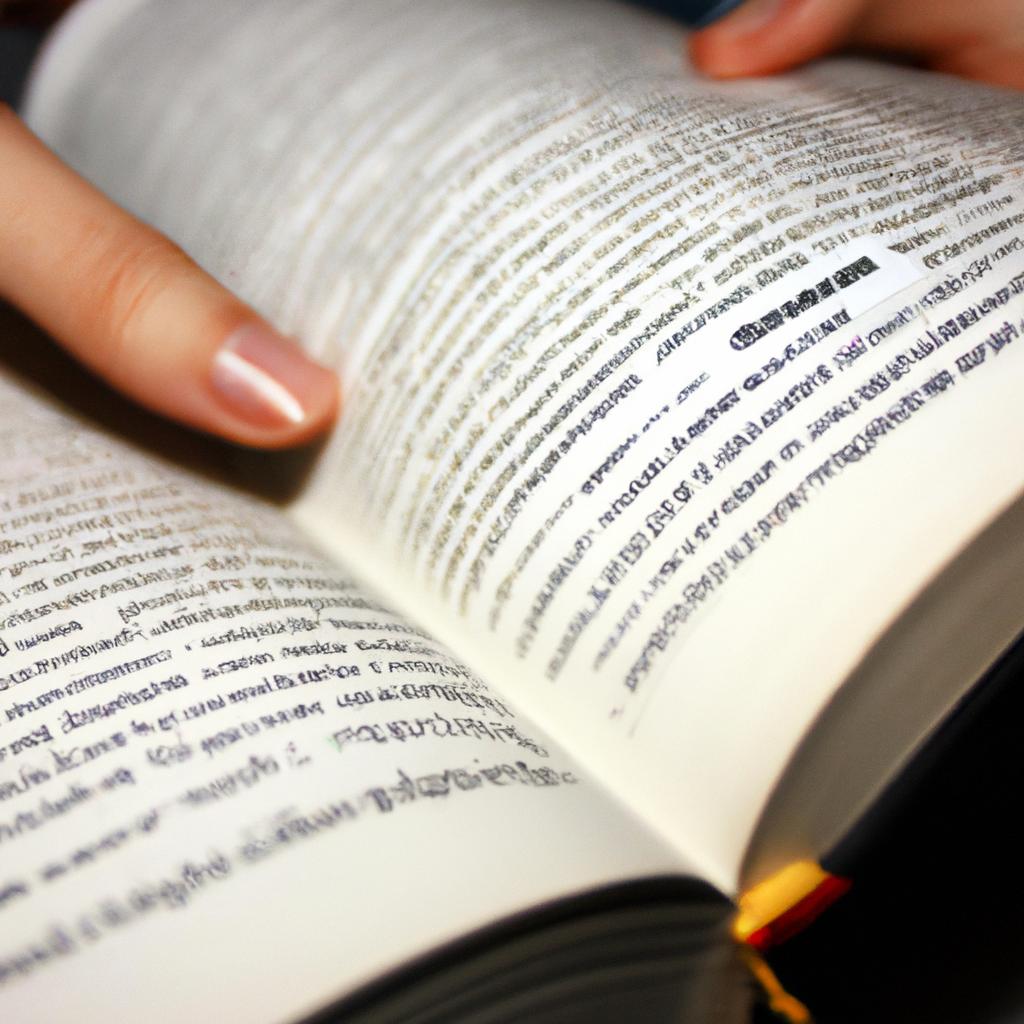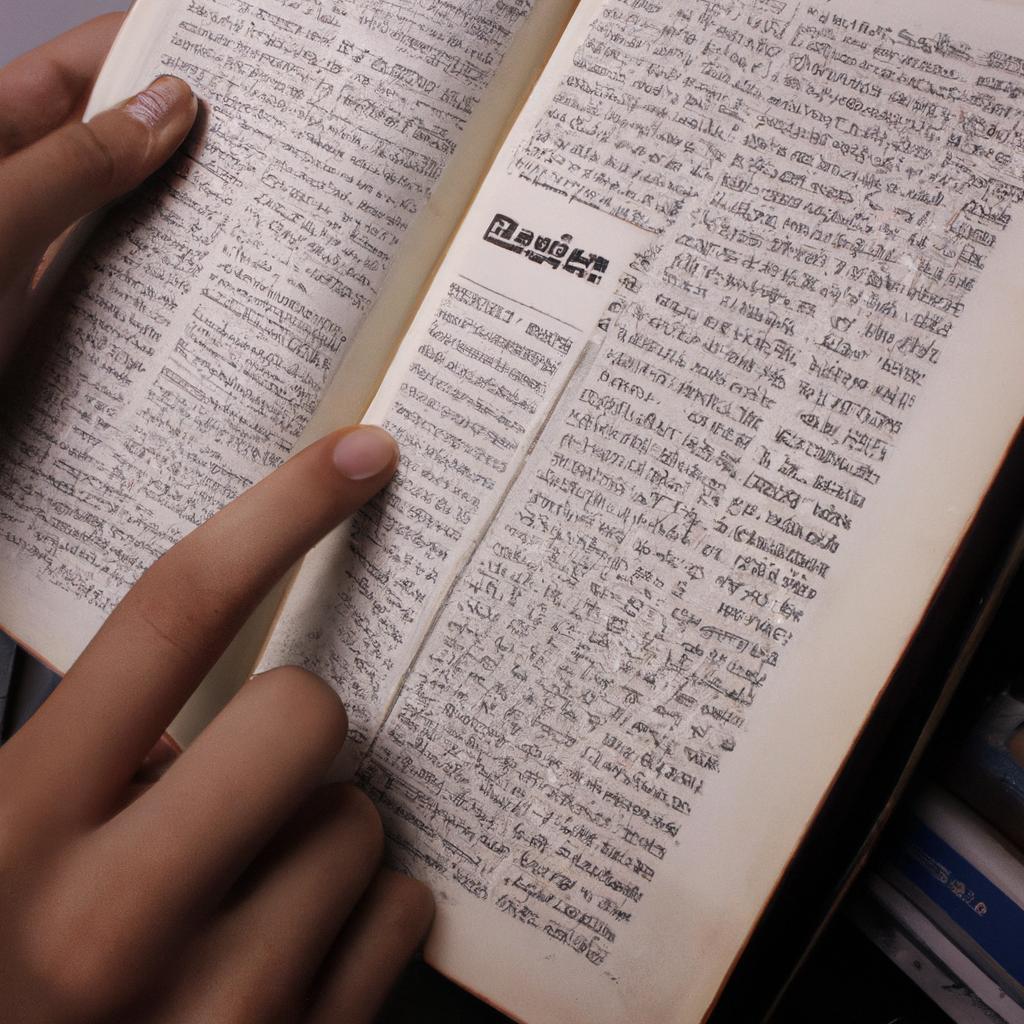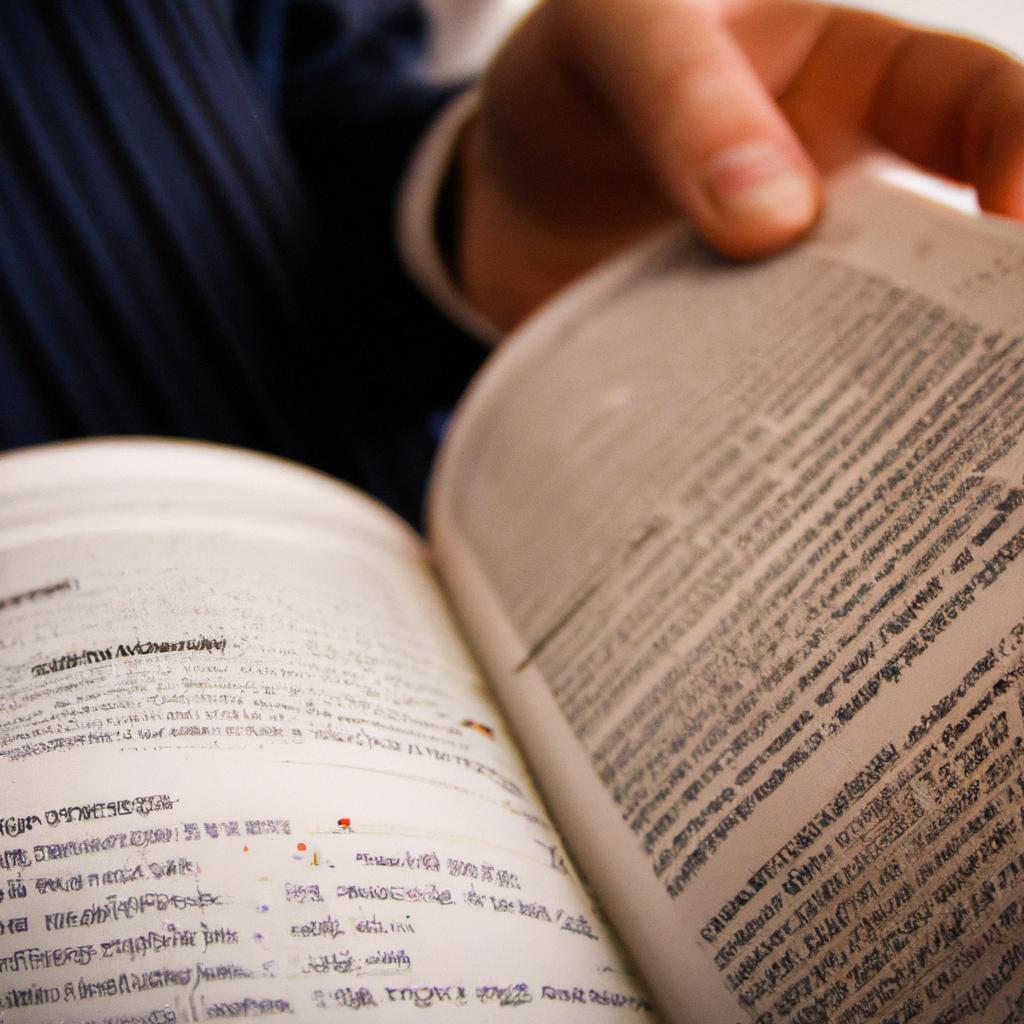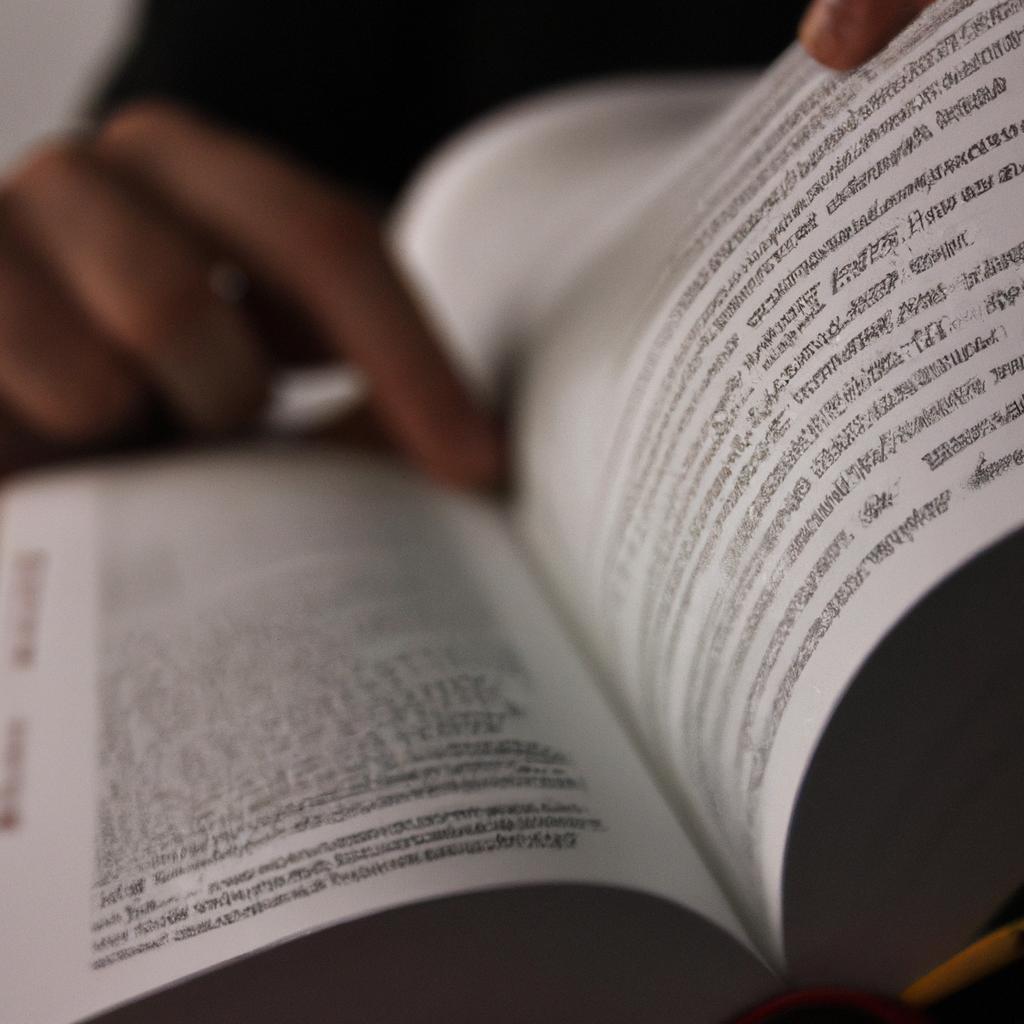In a once-poverty-stricken ethnic minority village in southwest China’s Yunnan Province, several 70-year-old women have made the switch from working in the fields to painting interesting works of art to them. brought in money and even caught the attention of foreigners. READ MORE: Learn the ways you can Make Use …
Read More »Word Wealth Solutions: Dictionaries and Hybrid Topics
In the realm of language and communication, dictionaries play a crucial role in helping individuals navigate through words and meanings. They serve as comprehensive repositories of lexical knowledge, offering definitions, etymologies, pronunciations, and usages for an extensive range of terms. However, as our understanding and usage of language evolve with …
Read More »Values() in Dictionaries: An Informational Guide
Dictionaries are a fundamental data structure in computer science, allowing for the storage and retrieval of key-value pairs. While much attention is often given to accessing keys within dictionaries, understanding how to extract the corresponding values is equally crucial. This article serves as an informational guide on the “values()” method …
Read More »Using get() to Access Dictionary Items: An Informational Guide
Using the get() function to access dictionary items is a crucial aspect of working with dictionaries in programming. This informational guide aims to provide an in-depth understanding of how to effectively utilize the get() method for accessing and retrieving values from dictionaries. By employing this technique, programmers can enhance their …
Read More »Usage Examples: Word Wealth Solutions
The acquisition and mastery of a rich vocabulary is essential for effective communication in any language. However, building an extensive word wealth can be a challenging task for many individuals. Fortunately, there are various solutions available that aim to enhance one’s lexical repertoire. This article explores the concept of “Usage …
Read More »Updating Values: A Guide to Modifying Dictionary Values
In the realm of computer programming, dictionaries are invaluable data structures that allow for efficient storage and retrieval of key-value pairs. However, there may be instances where the values associated with certain keys need to be modified or updated. This article aims to provide a comprehensive guide on how to …
Read More »Updating Key Value: Dictionary Access
Key-value dictionaries are a fundamental data structure in computer science, providing an efficient and flexible way to store and access information. In the context of programming languages such as Python or JavaScript, dictionary access is a crucial operation that allows developers to retrieve and modify values associated with specific keys. …
Read More »Updating Dictionaries: The Essential Guide
In the ever-evolving landscape of language, dictionaries serve as vital tools for capturing and preserving linguistic knowledge. However, with the rapid pace at which new words, meanings, and expressions emerge, it becomes imperative to update these lexical repositories in order to accurately reflect the dynamism of contemporary usage. This article …
Read More »Updating Dictionaries: A Comprehensive Guide
Dictionaries are essential tools for language learners, educators, and researchers alike. They serve as comprehensive references that provide definitions, pronunciations, and usage examples of words in a given language. However, with the ever-evolving nature of languages and the emergence of new vocabulary and meanings, dictionaries need to be regularly updated …
Read More »Update() in Dictionaries:items
The update() method in dictionaries is a crucial tool for modifying the values of existing keys or adding new key-value pairs. This article aims to explore the functionality and applications of the update() method, shedding light on its significance in programming tasks that involve dictionary manipulation. To illustrate its practicality, …
Read More »The Origin of Words: The Wealth of Language
Languages are complex systems that allow humans to communicate ideas, thoughts, and emotions. Within these linguistic frameworks, words serve as the building blocks of communication. However, have you ever wondered about the origin of these words? How did they come into existence? This article delves into the fascinating topic of …
Read More »Synonyms: Word Wealth Solutions in Dictionaries
Synonyms play a crucial role in enriching our vocabulary and enhancing our ability to express ourselves effectively. In dictionaries, synonyms are invaluable resources that enable us to expand our word choices and improve our language skills. This article explores the importance of synonyms as word wealth solutions in dictionaries, examining …
Read More »Sorting Dictionary Values: An Informational Article
Sorting dictionary values is a fundamental operation in computer programming and data analysis, allowing for the organization and retrieval of information based on specific criteria. In this informational article, we will explore various techniques and algorithms used to sort dictionary values efficiently. By understanding how sorting works within the context …
Read More »Setdefault() in Dictionaries: Items
Dictionaries are a fundamental data structure in Python, allowing for efficient storage and retrieval of key-value pairs. One commonly used method when working with dictionaries is the “setdefault()” function, particularly when dealing with items within dictionaries. This article aims to explore the functionality and applications of “setdefault()” in relation to …
Read More »Removing Key-Value Pairs: Simplifying Dictionary Operations
In the realm of computer science, dictionaries serve as fundamental data structures for storing and retrieving information. These key-value pairs allow programmers to associate a value with a specific key, enabling efficient access and manipulation of data. However, in certain scenarios, it becomes necessary to remove specific key-value pairs from …
Read More »Pronunciation in Dictionaries: Word Wealth Solutions
Pronunciation is a critical aspect of language learning and communication, allowing individuals to effectively convey their thoughts and ideas. However, the intricacies of pronunciation can often pose challenges for learners, particularly when faced with unfamiliar words or dialects. Dictionaries have long been relied upon as indispensable tools in overcoming these …
Read More »Popitem() in Dictionaries: An Informative Guide
Dictionaries are a fundamental data structure in computer programming, providing an efficient way to store and retrieve key-value pairs. Among the various built-in methods available for dictionaries, one particularly useful method is popitem(). In this informative guide, we will explore the functionality and applications of popitem() in dictionaries, shedding light …
Read More »Modifying Dictionary Values: Keys in Context
Modifying dictionary values is a fundamental operation in computer science and programming. It involves changing the assigned value of a specific key within a dictionary, which can have significant implications for various applications and algorithms. This article explores the concept of modifying dictionary values from a contextual standpoint, shedding light …
Read More »Merging Dictionaries: Accessing Two Become One
The process of merging dictionaries involves combining two or more dictionaries into one unified structure. This article explores the various techniques and considerations involved in this task, with a focus on how to access the merged dictionary efficiently. To illustrate the importance of this topic, let us consider an example …
Read More »Mastering Dictionary Keys: Unlock the Power of Key Lists
The effective use of dictionary keys is crucial for efficient programming and data management. Dictionaries, also known as associative arrays or hash maps, are widely used in various programming languages to store and retrieve data based on unique key-value pairs. Understanding the concepts and techniques related to dictionary keys is …
Read More »Keys: Dictionary Key Concepts
Keys are an essential component of dictionaries that play a crucial role in organizing and accessing information efficiently. They serve as the foundation upon which dictionary entries are constructed, providing users with a systematic way to locate specific words or concepts within the vast realm of lexical knowledge. For instance, …
Read More »Iterating Through Keys: An Informational Guide for Dictionary>keys
Iterating through keys is a crucial operation when working with dictionaries in programming. By accessing the keys of a dictionary, developers can retrieve and manipulate the corresponding values associated with those keys. This informational guide aims to provide an overview of the various methods available for iterating through keys in …
Read More »Iterating over Keys, Values, or Items: Accessing Dictionary Elements
In the realm of computer programming, dictionaries are widely used data structures that store collections of key-value pairs. Accessing and manipulating the elements within a dictionary is an essential task in many programming scenarios. However, navigating through these elements can be challenging without proper understanding of the available techniques. This …
Read More »Items: The Basics of Dictionaries
Dictionaries, a fundamental data structure in computer programming, hold an essential role in storing and retrieving key-value pairs. Similar to how a traditional dictionary contains words and their corresponding definitions, dictionaries in programming provide a means of associating values with unique identifiers or keys. For instance, imagine a scenario where …
Read More »Getting the Number of Items in a Dictionary: Dictionaries > Accessing
In the world of programming, dictionaries are powerful data structures that allow for efficient storage and retrieval of key-value pairs. They provide a convenient way to organize and access vast amounts of information. One common task when working with dictionaries is determining the number of items they contain. This article …
Read More »Extracting Values: The Power of Dictionaries>values
In the digital age, data has become a valuable resource for businesses and organizations across various industries. With large amounts of information being generated and stored, it is crucial to have efficient methods of extracting specific values from datasets. One powerful tool that enables this extraction process is dictionaries, which …
Read More »Dictionaries: Updating Pop(key default) in Context of Pop
Dictionaries are an essential data structure in computer science, allowing the storage and retrieval of key-value pairs. One common operation performed on dictionaries is the removal of a specific key along with its corresponding value. The Python programming language provides the pop() method for this purpose, which allows users to …
Read More »Dictionaries: Setdefault(key default) for Updating
Dictionaries are a fundamental data structure in computer science, providing an efficient way to store and retrieve key-value pairs. One important operation when working with dictionaries is updating the value associated with a given key. Traditionally, programmers have used the assignment operator (=) to update values in dictionaries. However, Python …
Read More »Deleting Items from a Dictionary: Accessing and Removing
In the field of computer science, dictionaries play a crucial role in storing and retrieving data efficiently. A dictionary is a data structure that allows for efficient key-value pair storage and retrieval operations. However, there are instances where it becomes necessary to delete items from a dictionary. This article aims …
Read More »Deleting Dictionary Values: A Comprehensive Guide
Deleting dictionary values is a crucial operation in programming that involves removing specific key-value pairs from dictionaries. In the realm of software development, dictionaries play a fundamental role in storing and retrieving data efficiently. However, there are instances where certain values within dictionaries become obsolete or need to be removed …
Read More »Definition: Word Wealth Solutions in Dictionaries
Word Wealth Solutions in dictionaries refer to the inclusion of comprehensive definitions and explanations that enhance users’ understanding and knowledge of words. This article aims to explore the importance of word wealth solutions in dictionaries, examining how they contribute to effective communication and language development. To illustrate this concept, let …
Read More »Deepcopy() for Dictionary Updating: An Informational Guide
The process of updating dictionaries in Python can often prove to be a challenging task, particularly when it comes to ensuring the integrity and immutability of the original data structure. One common approach to overcome this challenge is through the use of the deepcopy() function, which provides a mechanism for …
Read More »Copy() for Efficient Dictionary Updating: A Brief Guide
Updating dictionaries efficiently is a crucial task in computer programming, particularly when dealing with large datasets. One commonly used method for dictionary updating is the copy() function, which allows for creating copies of existing dictionaries without altering their original values. This article aims to provide a brief guide on how …
Read More »Clear() in Dictionaries: An Informational Article
Clear() is a fundamental method in the Python programming language that allows developers to remove all key-value pairs from a dictionary. This article aims to provide an in-depth understanding of the Clear() method, discussing its functionality, implementation, and potential use cases. By exploring this topic, readers will gain valuable insights …
Read More »Checking for Value Existence in Dictionaries: A Guide
In the realm of computer programming, dictionaries serve as fundamental data structures that allow for efficient storage and retrieval of key-value pairs. As programmers engage in various tasks involving dictionaries, one common operation is checking whether a particular value exists within a dictionary. This seemingly straightforward task can pose challenges …
Read More »Checking for Key Existence: Dictionary Accessing
Checking for key existence is a crucial aspect of dictionary accessing, allowing programmers to determine whether a specific key exists within a given dictionary. This process involves verifying the presence or absence of a particular key before attempting any further operations on the dictionary data structure. For instance, consider a …
Read More »Checking for Key Existence in Dictionaries: The Essential Guide
In the realm of programming, dictionaries are frequently used data structures that allow for efficient storage and retrieval of key-value pairs. However, one common task when working with dictionaries is checking for the existence of a particular key within them. This essential guide aims to shed light on various approaches …
Read More »Antonyms: Word Wealth Solutions in Dictionaries
In the realm of language and linguistics, antonyms play a crucial role in understanding the richness and complexity of vocabulary. Antonyms are words that have opposite meanings, providing an essential tool for expressing nuances and shades of meaning within discourse. Dictionaries serve as invaluable resources for exploring antonyms, offering comprehensive …
Read More »Accessing: a guide to navigating Dictionaries
Accessing: a guide to Navigating Dictionaries In today’s information-driven world, dictionaries serve as vital tools for individuals seeking to enhance their linguistic knowledge and understanding. The ability to effectively navigate through the vast sea of words and meanings contained within a dictionary is crucial in order to fully benefit from …
Read More »Accessing Dictionary Values: Diving into Dictionaries>Keys
Dictionaries are fundamental data structures in programming, providing a flexible and efficient way to store and retrieve values. They consist of key-value pairs, where each unique key maps to a corresponding value. Accessing dictionary values by their keys is an essential operation that allows programmers to extract specific information from …
Read More »Accessing Dictionary Values: A Comprehensive Guide
Accessing dictionary values is a fundamental aspect of programming, as dictionaries allow for efficient storage and retrieval of data. Whether you are a novice or an experienced programmer, it is essential to have a comprehensive understanding of how to access these values effectively. This article aims to provide a detailed …
Read More » Its Mardan
Its Mardan







